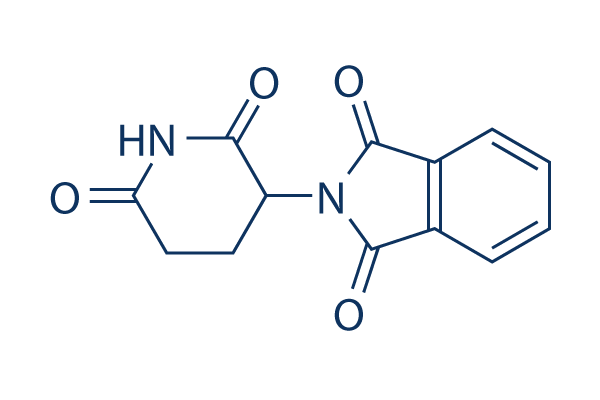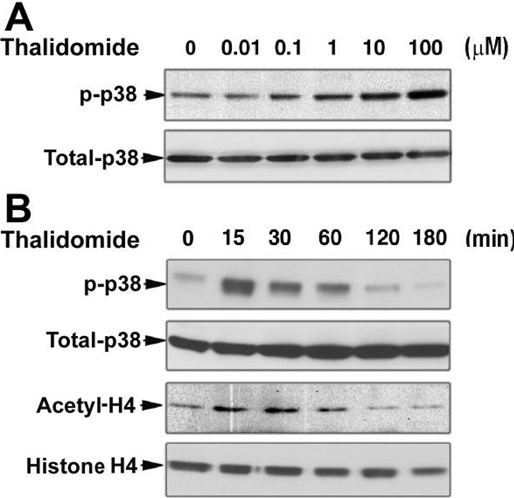
- Bioactive Compounds
- By Signaling Pathways
- PI3K/Akt/mTOR
- Epigenetics
- Methylation
- Immunology & Inflammation
- Protein Tyrosine Kinase
- Angiogenesis
- Apoptosis
- Autophagy
- ER stress & UPR
- JAK/STAT
- MAPK
- Cytoskeletal Signaling
- Cell Cycle
- TGF-beta/Smad
- Compound Libraries
- Popular Compound Libraries
- Customize Library
- Clinical and FDA-approved Related
- Bioactive Compound Libraries
- Inhibitor Related
- Natural Product Related
- Metabolism Related
- Cell Death Related
- By Signaling Pathway
- By Disease
- Anti-infection and Antiviral Related
- Neuronal and Immunology Related
- Fragment and Covalent Related
- FDA-approved Drug Library
- FDA-approved & Passed Phase I Drug Library
- Preclinical/Clinical Compound Library
- Bioactive Compound Library-I
- Bioactive Compound Library-Ⅱ
- Kinase Inhibitor Library
- Express-Pick Library
- Natural Product Library
- Human Endogenous Metabolite Compound Library
- Alkaloid Compound LibraryNew
- Angiogenesis Related compound Library
- Anti-Aging Compound Library
- Anti-alzheimer Disease Compound Library
- Antibiotics compound Library
- Anti-cancer Compound Library
- Anti-cancer Compound Library-Ⅱ
- Anti-cancer Metabolism Compound Library
- Anti-Cardiovascular Disease Compound Library
- Anti-diabetic Compound Library
- Anti-infection Compound Library
- Antioxidant Compound Library
- Anti-parasitic Compound Library
- Antiviral Compound Library
- Apoptosis Compound Library
- Autophagy Compound Library
- Calcium Channel Blocker LibraryNew
- Cambridge Cancer Compound Library
- Carbohydrate Metabolism Compound LibraryNew
- Cell Cycle compound library
- CNS-Penetrant Compound Library
- Covalent Inhibitor Library
- Cytokine Inhibitor LibraryNew
- Cytoskeletal Signaling Pathway Compound Library
- DNA Damage/DNA Repair compound Library
- Drug-like Compound Library
- Endoplasmic Reticulum Stress Compound Library
- Epigenetics Compound Library
- Exosome Secretion Related Compound LibraryNew
- FDA-approved Anticancer Drug LibraryNew
- Ferroptosis Compound Library
- Flavonoid Compound Library
- Fragment Library
- Glutamine Metabolism Compound Library
- Glycolysis Compound Library
- GPCR Compound Library
- Gut Microbial Metabolite Library
- HIF-1 Signaling Pathway Compound Library
- Highly Selective Inhibitor Library
- Histone modification compound library
- HTS Library for Drug Discovery
- Human Hormone Related Compound LibraryNew
- Human Transcription Factor Compound LibraryNew
- Immunology/Inflammation Compound Library
- Inhibitor Library
- Ion Channel Ligand Library
- JAK/STAT compound library
- Lipid Metabolism Compound LibraryNew
- Macrocyclic Compound Library
- MAPK Inhibitor Library
- Medicine Food Homology Compound Library
- Metabolism Compound Library
- Methylation Compound Library
- Mouse Metabolite Compound LibraryNew
- Natural Organic Compound Library
- Neuronal Signaling Compound Library
- NF-κB Signaling Compound Library
- Nucleoside Analogue Library
- Obesity Compound Library
- Oxidative Stress Compound LibraryNew
- Plant Extract Library
- Phenotypic Screening Library
- PI3K/Akt Inhibitor Library
- Protease Inhibitor Library
- Protein-protein Interaction Inhibitor Library
- Pyroptosis Compound Library
- Small Molecule Immuno-Oncology Compound Library
- Mitochondria-Targeted Compound LibraryNew
- Stem Cell Differentiation Compound LibraryNew
- Stem Cell Signaling Compound Library
- Natural Phenol Compound LibraryNew
- Natural Terpenoid Compound LibraryNew
- TGF-beta/Smad compound library
- Traditional Chinese Medicine Library
- Tyrosine Kinase Inhibitor Library
- Ubiquitination Compound Library
-
Cherry Picking
You can personalize your library with chemicals from within Selleck's inventory. Build the right library for your research endeavors by choosing from compounds in all of our available libraries.
Please contact us at info@selleckchem.com to customize your library.
You could select:
- Antibodies
- Bioreagents
- qPCR
- 2x SYBR Green qPCR Master Mix
- 2x SYBR Green qPCR Master Mix(Low ROX)
- 2x SYBR Green qPCR Master Mix(High ROX)
- Protein Assay
- Protein A/G Magnetic Beads for IP
- Anti-DYKDDDDK Tag magnetic beads
- Anti-DYKDDDDK Tag Affinity Gel
- Anti-Myc magnetic beads
- Anti-HA magnetic beads
- Poly DYKDDDDK Tag Peptide lyophilized powder
- Protease Inhibitor Cocktail
- Protease Inhibitor Cocktail (EDTA-Free, 100X in DMSO)
- Phosphatase Inhibitor Cocktail (2 Tubes, 100X)
- Cell Biology
- Cell Counting Kit-8 (CCK-8)
- Animal Experiment
- Mouse Direct PCR Kit (For Genotyping)
- New Products
- Contact Us
Thalidomide
Synonyms: K17
Thalidomide was introduced as a sedative drug, immunomodulatory agent and also is investigated for treating symptoms of many cancers. Thalidomide inhibits cereblon (CRBN), a part of the cullin-4 E3 ubiquitin ligase complex CUL4-RBX1-DDB1.

Thalidomide Chemical Structure
CAS: 50-35-1
Selleck's Thalidomide has been cited by 31 publications
Purity & Quality Control
Batch:
Purity:
99.98%
99.98
Related compound libraries
Choose Selective E3 ligase Ligand Inhibitors
Cell Data
| Cell Lines | Assay Type | Concentration | Incubation Time | Formulation | Activity Description | PMID |
|---|---|---|---|---|---|---|
| HeLa | Function assay | Inhibition of IL-1-alpha-induced NF-kappaB activation in HeLa cells assessed as blocking of p50/p65 nuclear translocation, IC50=2.04μM | 17845850 | |||
| RAW264.7 | Antiinflammatory assay | 10 uM | 3 hrs | Antiinflammatory activity in mouse LPS-activated RAW264.7 cells assessed as ROS scavenging activity at 10 uM pretreated for 3 hrs before LPS challenge measured by decrease in fluorescent intensity by confocal microscopy | 18723357 | |
| RAW264.7 | Function assay | 1 uM | 3 hrs | Reduction in iNOS expression in LPS-activated mouse RAW264.7 cells at 1 uM pretreated for 3 hrs before LPS challenge assessed after 24 hrs by Western blot | 18723357 | |
| RAW264.7 | Function assay | 10 uM | 3 hrs | Reduction in iNOS expression in LPS-activated mouse RAW264.7 cells at 10 uM pretreated for 3 hrs before LPS challenge assessed after 24 hrs by Western blot | 18723357 | |
| RAW264.7 | Function assay | 10 uM | 3 hrs | Reduction in pERK1/2 expression in LPS-activated mouse RAW264.7 cells at 10 uM pretreated for 3 hrs before LPS challenge assessed after 24 hrs by Western blot | 18723357 | |
| Ehrlich ascites carcinoma cells | Toxicity assay | 1.25 mM/kg | 7 days | Toxicity in Swiss albino mouse bearing mouse Ehrlich ascites carcinoma cells assessed as focal degeneration of hepatocytes treated after 7 days post-tumor implantation at 1.25 mM/kg, sc for 5 days by histopathological analysis | 18951804 | |
| Ehrlich ascites carcinoma cells | Toxicity assay | 1.25 mM/kg | 7 days | Toxicity in Swiss albino mouse bearing mouse Ehrlich ascites carcinoma cells assessed as focal necrosis of hepatocytes treated after 7 days post-tumor implantation at 1.25 mM/kg, sc for 5 days by histopathological analysis | 18951804 | |
| BTI-TN-5B1-4 | Function assay | 30 mins | Binding affinity to human CRBN (1 to 442 residues)/N-terminal 6His-tagged human DDB1 (1 to 1140 residues) expressed in baculovirus infected BTI-TN-5B1-4 insect cells after 30 mins by cy5 probe based fluorescence polarization assay, Kd=0.25μM | 31117518 | ||
| Click to View More Cell Line Experimental Data | ||||||
Biological Activity
| Description | Thalidomide was introduced as a sedative drug, immunomodulatory agent and also is investigated for treating symptoms of many cancers. Thalidomide inhibits cereblon (CRBN), a part of the cullin-4 E3 ubiquitin ligase complex CUL4-RBX1-DDB1. | ||
|---|---|---|---|
| Targets |
|
| In vitro | ||||
| In vitro | Thalidomide must be metabolized by the liver to form an epoxide that may be the active teratogenic metabolite. [1] Thalidomide selectively inhibits the production of human monocyte tumor necrosis factor alpha (TNF-alpha) when human monocytes are triggered with lipopolysaccharide and other agonists in culture. [2] Thalidomide exerts its inhibitory action on tumor necrosis factor alpha by enhancing mRNA degradation. [3] Thalidomide acts directly, by inducing apoptosis or G1 growth arrest, in MM cell lines and in patient MM cells that are resistant to melphalan, doxorubicin, and dexamethasone (Dex). Thalidomide enhances the anti-MM activity of Dex and, conversely, are inhibited by interleukin 6. [4] Thalidomide is a potent costimulator of primary human T cells in vitro, synergizing with stimulation via the T cell receptor complex to increase interleukin 2-mediated T cell proliferation and interferon gamma production. Thalidomide also increases the primary CD8+ cytotoxic T cell response induced by allogeneic dendritic cells in the absence of CD4+ T cells. [5] |
|||
|---|---|---|---|---|
| Experimental Result Images | Methods | Biomarkers | Images | PMID |
| Western blot | p-p38 / p38 / Acetyl-H4 |

|
17620452 | |
| Immunofluorescence | bFGF VCAM-1/CUL5 / NEDD8 |

|
25053990 | |
| In Vivo | ||
| In vivo |
Thalidomide (200 mg/kg) results in an inhibition of the area of vascularized cornea of rabbits that ranged from 30% to 51% in three experiments with a median inhibition of 36%. [1] |
|
|---|---|---|
| NCT Number | Recruitment | Conditions | Sponsor/Collaborators | Start Date | Phases |
|---|---|---|---|---|---|
| NCT06146478 | Completed | Transfusion-dependent Beta-Thalassemia | Blood Care Clinic|Khyber Medical University Peshawar | January 25 2022 | Phase 3 |
| NCT04680195 | Unknown status | Chronic Radiation Proctitis | Sixth Affiliated Hospital Sun Yat-sen University | December 14 2020 | Phase 2 |
| NCT04469556 | Recruiting | Pancreatic Cancer Metastatic|Pancreatic Ductal Adenocarcinoma|Advanced Pancreatic Cancer | University Health Network Toronto|Johns Hopkins University|Cold Spring Harbor Laboratory|Ontario Institute for Cancer Research|Dana-Farber Cancer Institute|Memorial Sloan Kettering Cancer Center|Stand Up To Cancer | October 14 2020 | Phase 2 |
Chemical lnformation & Solubility
| Molecular Weight | 258.23 | Formula | C13H10N2O4 |
| CAS No. | 50-35-1 | SDF | Download Thalidomide SDF |
| Smiles | C1CC(=O)NC(=O)C1N2C(=O)C3=CC=CC=C3C2=O | ||
| Storage (From the date of receipt) | |||
|
In vitro |
DMSO : 51 mg/mL ( (197.49 mM); Moisture-absorbing DMSO reduces solubility. Please use fresh DMSO.) Water : Insoluble Ethanol : Insoluble |
Molecular Weight Calculator |
|
In vivo Add solvents to the product individually and in order. |
In vivo Formulation Calculator |
||||
Preparing Stock Solutions
Molarity Calculator
In vivo Formulation Calculator (Clear solution)
Step 1: Enter information below (Recommended: An additional animal making an allowance for loss during the experiment)
mg/kg
g
μL
Step 2: Enter the in vivo formulation (This is only the calculator, not formulation. Please contact us first if there is no in vivo formulation at the solubility Section.)
% DMSO
%
% Tween 80
% ddH2O
%DMSO
%
Calculation results:
Working concentration: mg/ml;
Method for preparing DMSO master liquid: mg drug pre-dissolved in μL DMSO ( Master liquid concentration mg/mL, Please contact us first if the concentration exceeds the DMSO solubility of the batch of drug. )
Method for preparing in vivo formulation: Take μL DMSO master liquid, next addμL PEG300, mix and clarify, next addμL Tween 80, mix and clarify, next add μL ddH2O, mix and clarify.
Method for preparing in vivo formulation: Take μL DMSO master liquid, next add μL Corn oil, mix and clarify.
Note: 1. Please make sure the liquid is clear before adding the next solvent.
2. Be sure to add the solvent(s) in order. You must ensure that the solution obtained, in the previous addition, is a clear solution before proceeding to add the next solvent. Physical methods such
as vortex, ultrasound or hot water bath can be used to aid dissolving.
Tech Support
Answers to questions you may have can be found in the inhibitor handling instructions. Topics include how to prepare stock solutions, how to store inhibitors, and issues that need special attention for cell-based assays and animal experiments.
Tel: +1-832-582-8158 Ext:3
If you have any other enquiries, please leave a message.
* Indicates a Required Field
Tags: buy Thalidomide | Thalidomide ic50 | Thalidomide price | Thalidomide cost | Thalidomide solubility dmso | Thalidomide purchase | Thalidomide manufacturer | Thalidomide research buy | Thalidomide order | Thalidomide mouse | Thalidomide chemical structure | Thalidomide mw | Thalidomide molecular weight | Thalidomide datasheet | Thalidomide supplier | Thalidomide in vitro | Thalidomide cell line | Thalidomide concentration | Thalidomide nmr







































